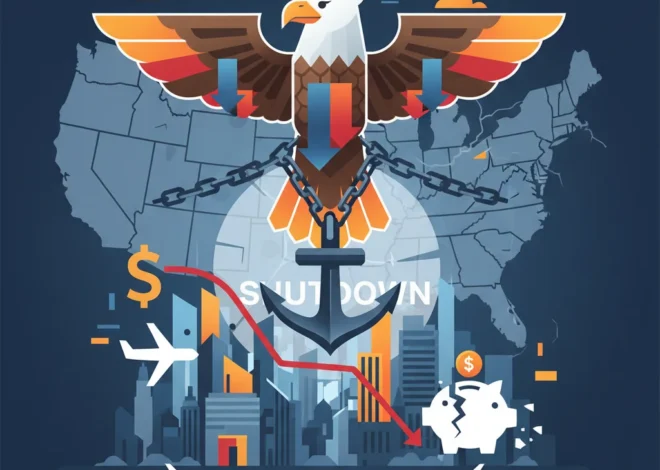
From a Mumbai Library to the Blockchain: The Timeless Principles Shaping Modern Finance
In a recent letter to the Financial Times, former BBC Sports Editor Mihir Bose shared a poignant memory of the British Council library on Hornby Road in 1960s Mumbai. For a young man in post-independence India, this library wasn’t just a building filled with books; it was, as he describes it, a “haven” – a portal to a world of ideas, history, and economic thought previously beyond his reach. It was here that he encountered authors like A.J.P. Taylor, whose work challenged his worldview and expanded his intellectual horizons. This seemingly simple act of accessing information in a quiet, air-conditioned room was, in reality, a profound act of empowerment.
Bose’s nostalgia offers more than just a charming anecdote. It serves as a powerful allegory for one of the most fundamental drivers of economic progress and financial innovation: the democratization of access to information. The journey from that curated collection of books on Hornby Road to today’s decentralized, AI-driven financial markets is a direct line. The technology has changed beyond recognition, but the underlying principle remains the same. Access to quality information is the bedrock upon which sound investment decisions, robust economies, and individual prosperity are built. This exploration will trace that line, connecting the quiet revolution of a mid-century library to the disruptive power of today’s financial technology.
The Unseen ROI: Information as an Economic Catalyst
The British Council library, and others like it, represented a crucial investment in human capital. In the decades following independence, India was focused on building its industrial and institutional foundations. While large-scale infrastructure projects were the visible signs of progress, these “soft infrastructure” outposts were quietly cultivating the nation’s most valuable resource: its intellectual talent. By providing access to global perspectives on history, politics, and economics, these institutions equipped a generation of future leaders, entrepreneurs, and professionals with the tools for critical thinking.
This investment paid dividends that are still compounding today. The very architects of India’s IT and financial services boom in the late 20th century were often the products of an education system supplemented by such resources. They learned not just technical skills, but how to engage with the global economy. According to a report by the India Brand Equity Foundation, India’s service sector is now the largest and fastest-growing contributor to the country’s GDP. This phenomenal growth was not an accident; it was seeded in places like the library on Hornby Road, which lowered the barrier to entry for acquiring world-class knowledge.
This principle is a cornerstone of modern investing. An investor with access to real-time data, diverse analytical reports, and global news is fundamentally more empowered than one operating with delayed or incomplete information. The library was the analog equivalent of a Bloomberg Terminal—a centralized, trusted source that provided a significant competitive edge to those who could access it.
Chipotle's Burrito Blues: Why a Fast-Food Giant's Warning Is a Red Flag for the Entire Economy
The Evolution of the Financial Information Hub
The “library” of financial knowledge has undergone a dramatic transformation over the past 60 years. We can map this evolution across three distinct eras, each representing a quantum leap in accessibility, speed, and decentralization.
The Analog Age: Curated Knowledge and Centralized Trust
In the mid-20th century, high-value financial information was scarce and heavily guarded. It resided in physical locations: university libraries, exclusive clubs, and the research departments of major banking institutions. The British Council library was a semi-public version of this model. The knowledge was curated by an external authority, and trust was placed in the institution’s brand and selection process. For an aspiring individual, gaining access was a game-changer, but it was still a centralized, top-down flow of information.
The Digital Disruption: Democratizing the Stock Market
The advent of the internet and personal computing shattered this centralized model. Suddenly, the “library” was accessible from a desktop computer. The 1990s and 2000s saw an explosion of online brokerages and financial news websites that brought stock market data to the masses. For the first time, a retail investor in a small town had access to many of the same tools as a trader on Wall Street. This led to a massive surge in retail participation in financial markets. A Forbes Advisor article highlights how this “democratization of investing” has been accelerated by zero-commission trading and user-friendly mobile apps, fundamentally altering market dynamics.
The Decentralized Frontier: Fintech, Blockchain, and the New Trust Paradigm
We are now entering the third era, one defined by fintech and decentralization. If the digital era was about access, this new era is about ownership, transparency, and trustlessness. Blockchain technology, the distributed ledger that underpins cryptocurrencies, offers a new model for information integrity. Instead of trusting a central institution (like a library or a bank), participants can trust a transparent, immutable, and collectively verified network.
This has profound implications for finance. Decentralized Finance (DeFi) platforms aim to rebuild traditional financial services like lending, borrowing, and trading on open-source blockchains, removing intermediaries. AI-powered financial technology platforms can now analyze vast datasets to provide personalized investment insights that were once the exclusive domain of hedge funds. The “library” is no longer a place you go to; it’s an intelligent, decentralized network that is available to anyone with an internet connection.
The £500M Energy Debt Bailout: A Necessary Lifeline or a Risky Economic Precedent?
To better understand this transformation, let’s compare these three eras of information access:
| Feature | The Analog Era (e.g., 1960s Library) | The Digital Era (e.g., Online Brokerage) | The Decentralized Era (e.g., Blockchain/AI) |
|---|---|---|---|
| Access Method | Physical presence required | Desktop/Mobile Internet | Permissionless network access |
| Gatekeepers | Librarians, Institutions, Publishers | Corporations, Media Outlets, Platforms | Protocols, Algorithms, Community Governance |
| Cost of Access | Low (subsidized) to High (exclusive) | Freemium / Low-cost subscription | Transactional (gas fees) / Potentially free |
| Speed of Information | Days / Weeks / Months | Seconds / Minutes | Instantaneous / Real-time |
| Trust Mechanism | Institutional reputation | Brand trust and regulation | Cryptographic proof and code |
| Impact on Finance | Educated a core of professionals | Enabled mass retail investing | Enables peer-to-peer finance and automation |
From Gratitude to Global Collaboration
Bose’s forthcoming book is titled ‘Thank You Mr Crombie: Lessons in Guilt and Gratitude to the British’. This title hints at the complex, one-directional flow of knowledge in the post-colonial era. The library was a projection of “soft power,” a gift for which one felt gratitude.
The new paradigm of decentralized information upends this dynamic. Innovation in fintech is no longer a one-way street from West to East. Today, some of the most groundbreaking developments in mobile payments, micro-lending, and digital banking are emerging from countries like India, Kenya, and Brazil. The Unified Payments Interface (UPI) in India, for example, is a world-leading public infrastructure for real-time payments that many developed nations are now seeking to emulate. The global fintech market is projected to grow to nearly $400 billion by 2028, with a significant portion of that growth driven by emerging economies (source). The flow of knowledge is now multi-directional, collaborative, and competitive—a global network rather than a one-way broadcast.
The Enduring Lesson for Today’s Investor
The spirit of the library on Hornby Road is more relevant than ever. It teaches us that the tools we use to access information define the opportunities available to us. For the business leaders, finance professionals, and investors of today, the lesson is clear: we must be perpetual students, constantly adapting to and mastering the new “libraries” of our time.
Whether it’s understanding the tokenomics of a new blockchain project, leveraging AI for portfolio analysis, or simply navigating the complexities of the global economy, the commitment to seeking out and critically evaluating information remains the most critical investment skill. The quiet haven Mihir Bose found in Mumbai has been replaced by the dynamic, often chaotic, digital frontier. Yet, the reward for navigating it successfully is the same: the empowerment that comes from knowledge, and the ability to build a more prosperous future.
The Incredible Shrinking Shopping Cart: How "Shrinkflation" is Silently Eroding Your Wealth


